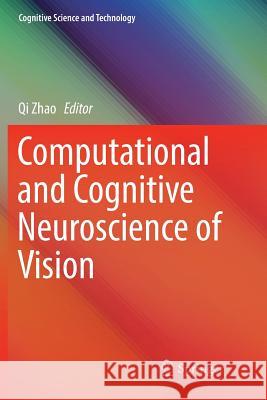Computational and Cognitive Neuroscience of Vision » książka
topmenu
Computational and Cognitive Neuroscience of Vision
ISBN-13: 9789811091063 / Angielski / Miękka / 2018 / 315 str.
Kategorie:
Kategorie BISAC:
Wydawca:
Springer
Seria wydawnicza:
Język:
Angielski
ISBN-13:
9789811091063
Rok wydania:
2018
Wydanie:
Softcover Repri
Ilość stron:
315
Waga:
0.45 kg
Wymiary:
23.39 x 15.6 x 1.73
Oprawa:
Miękka
Wolumenów:
01
Dodatkowe informacje:
Wydanie ilustrowane











